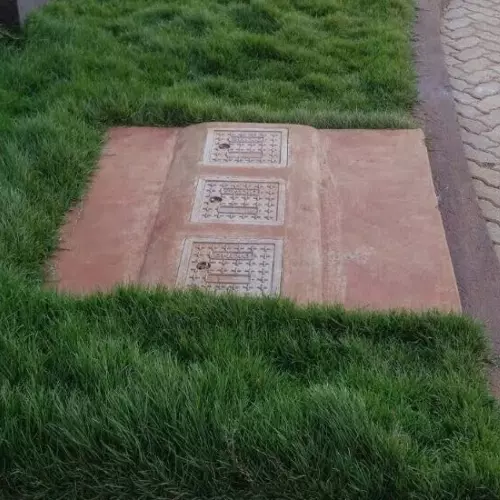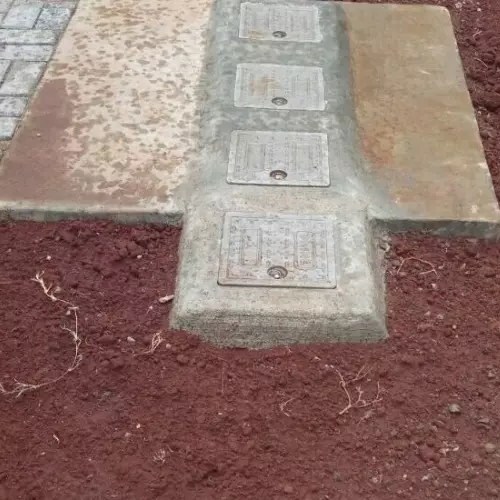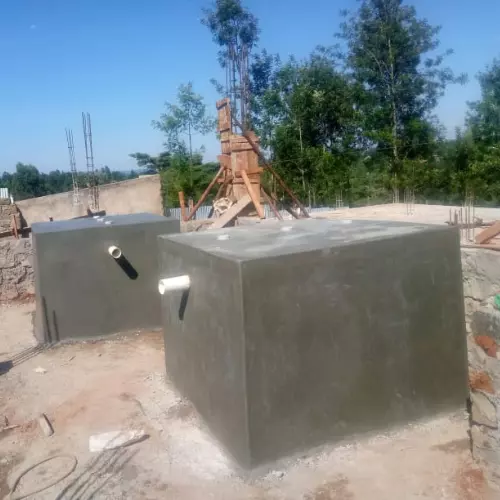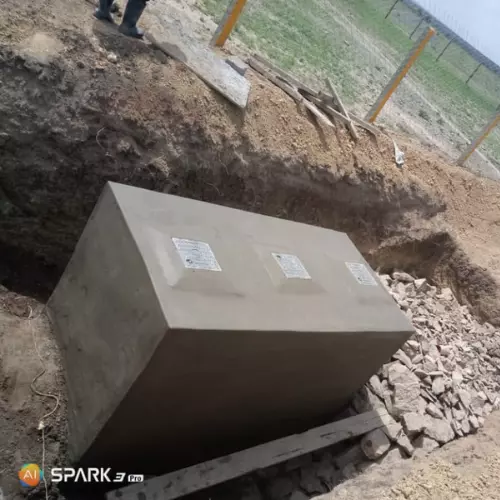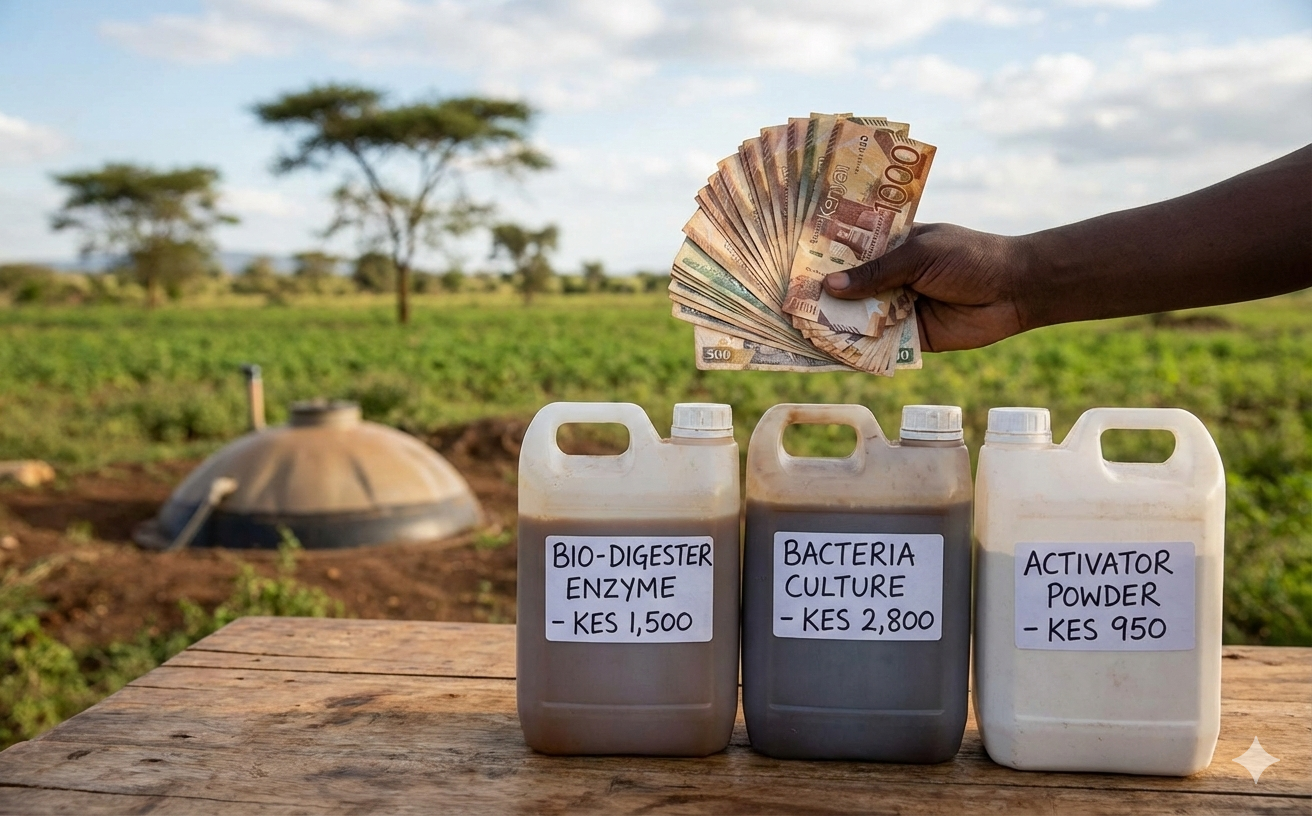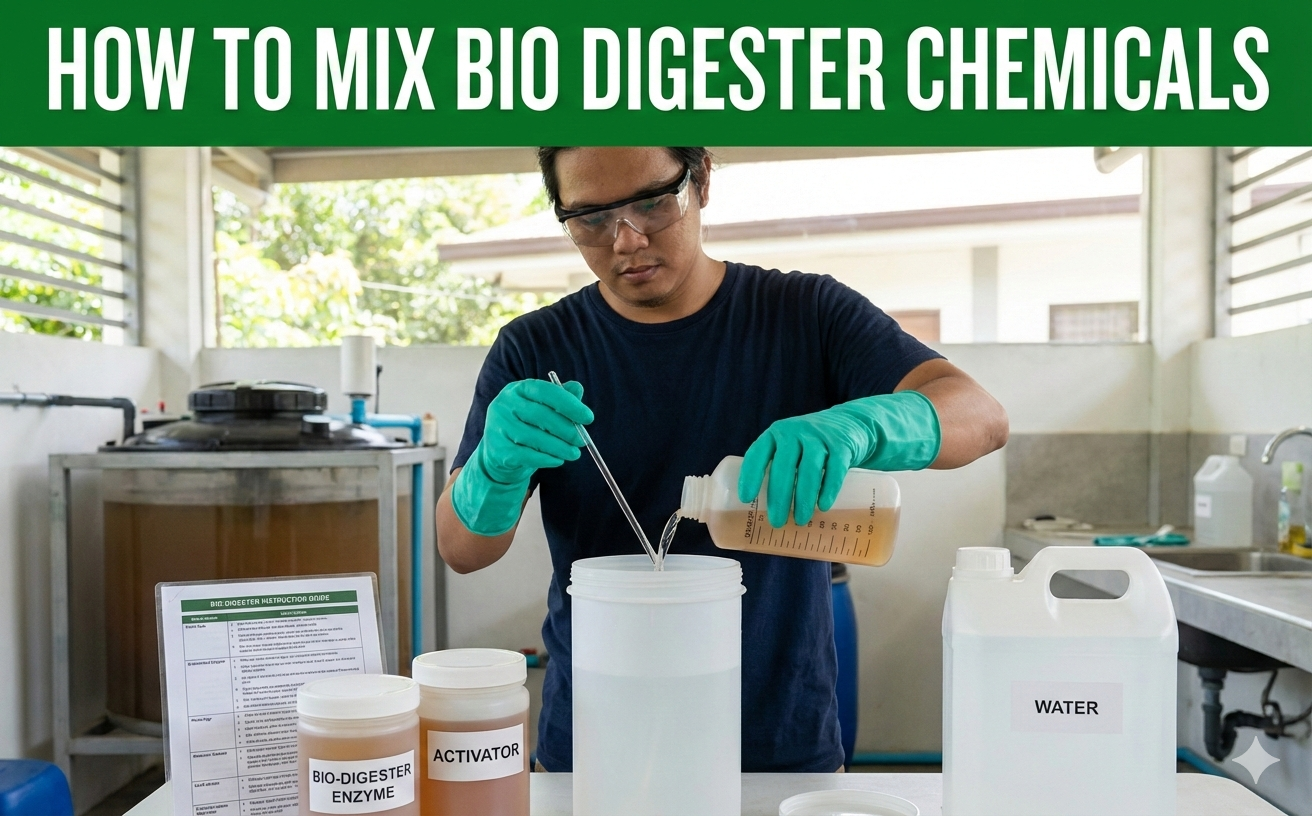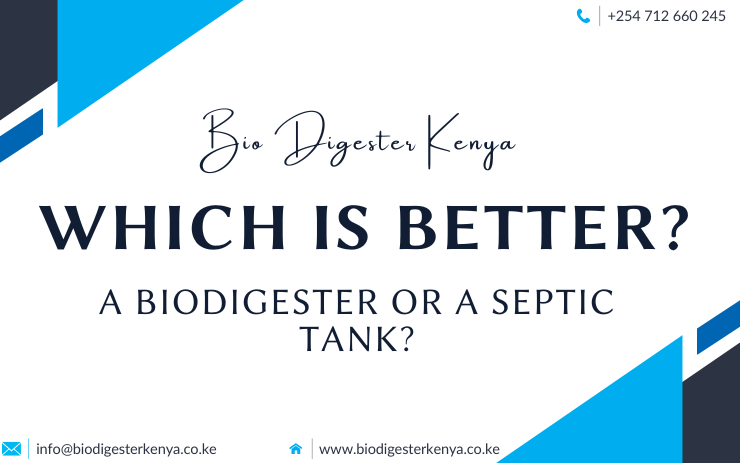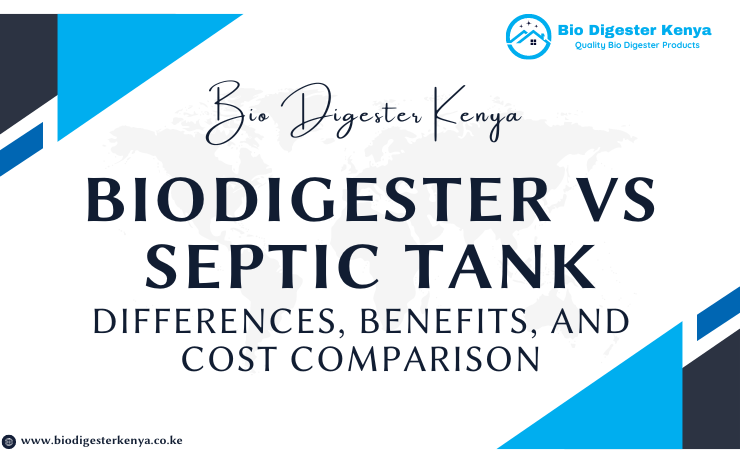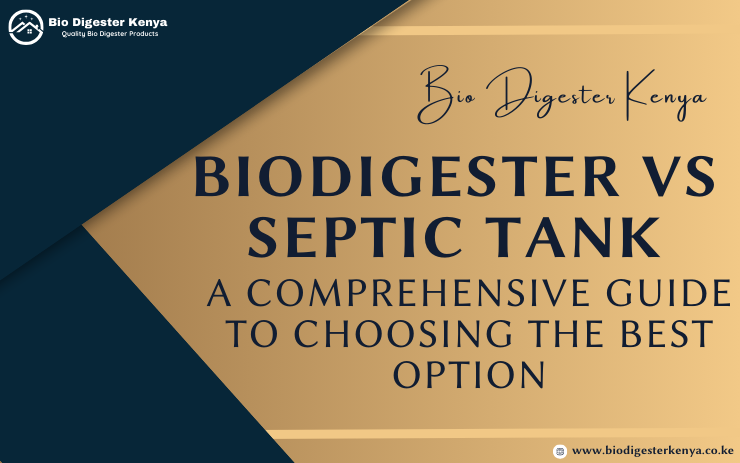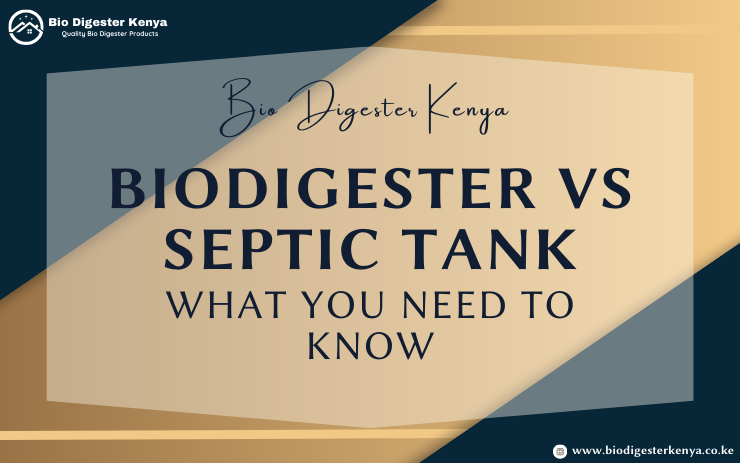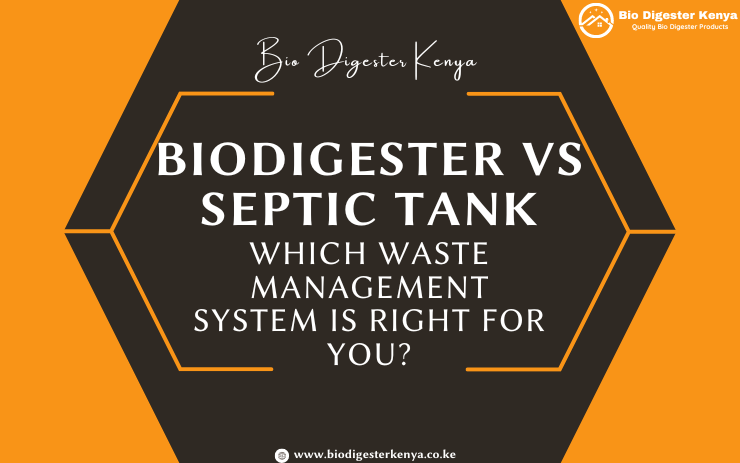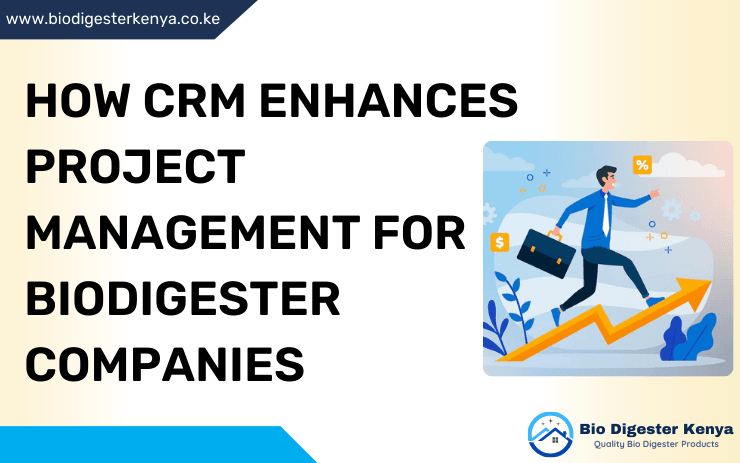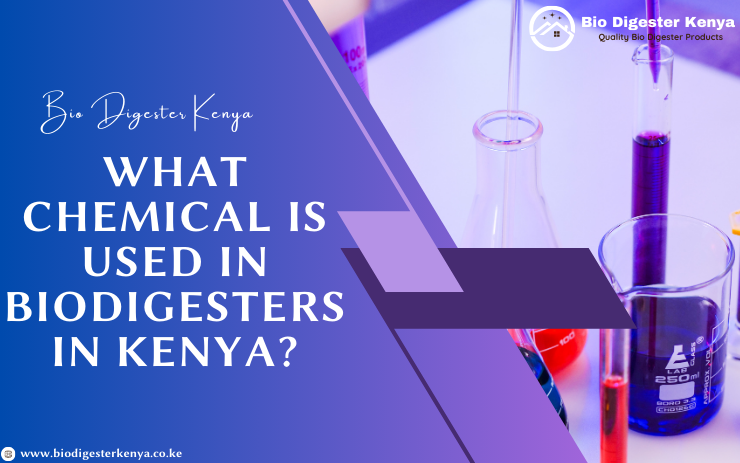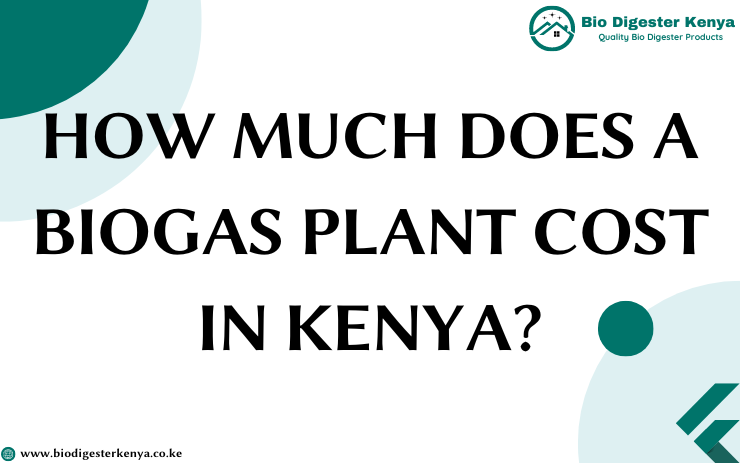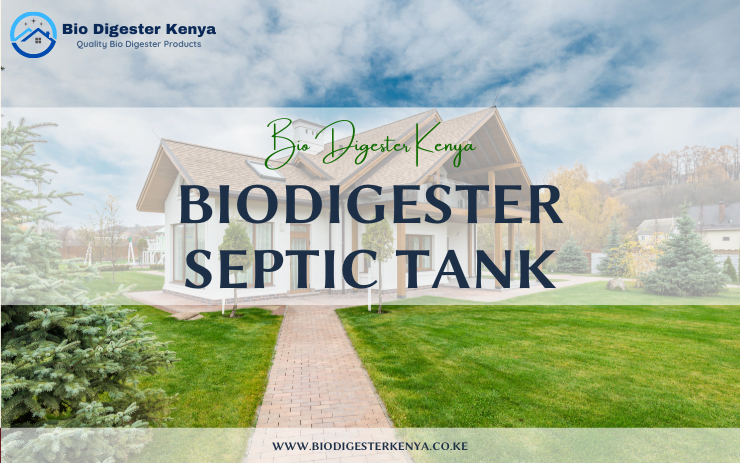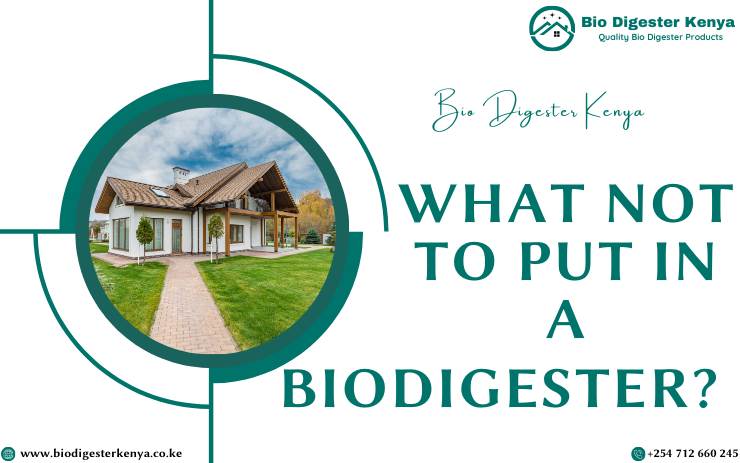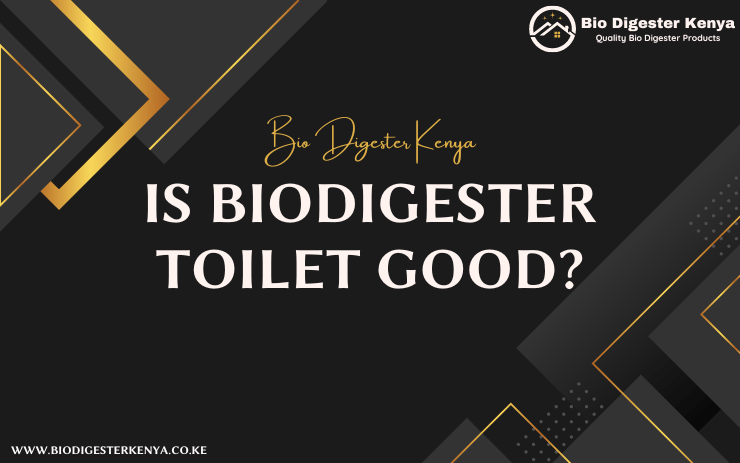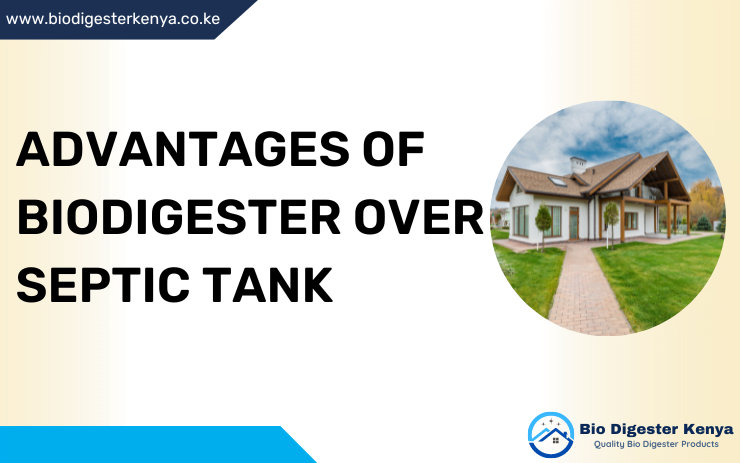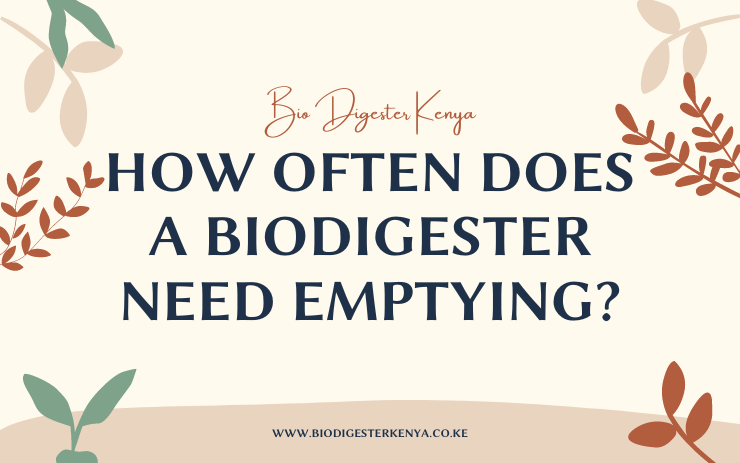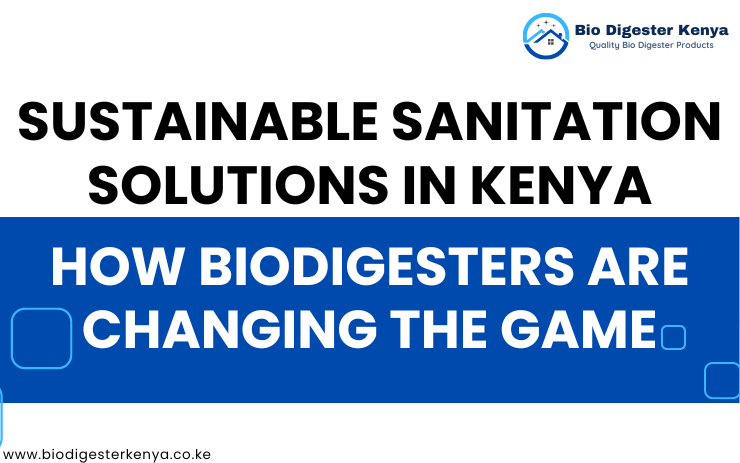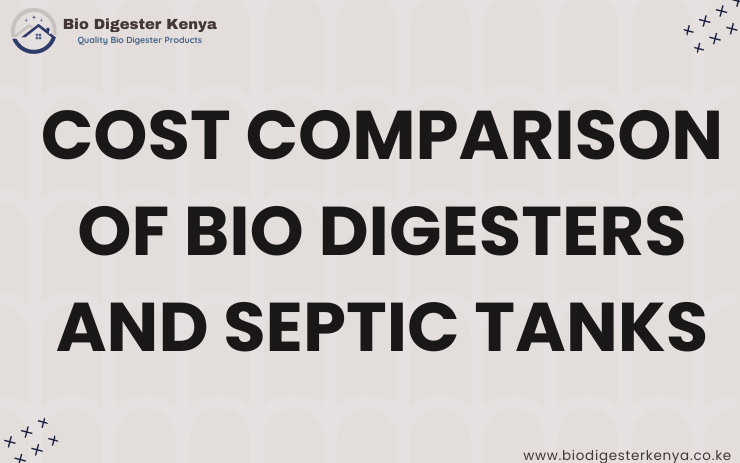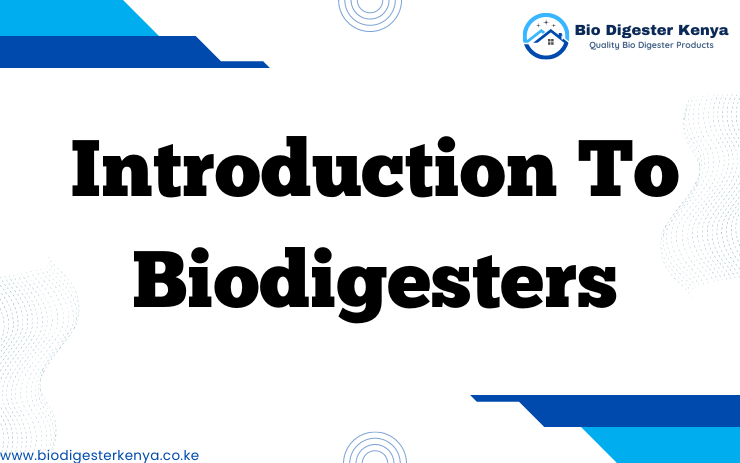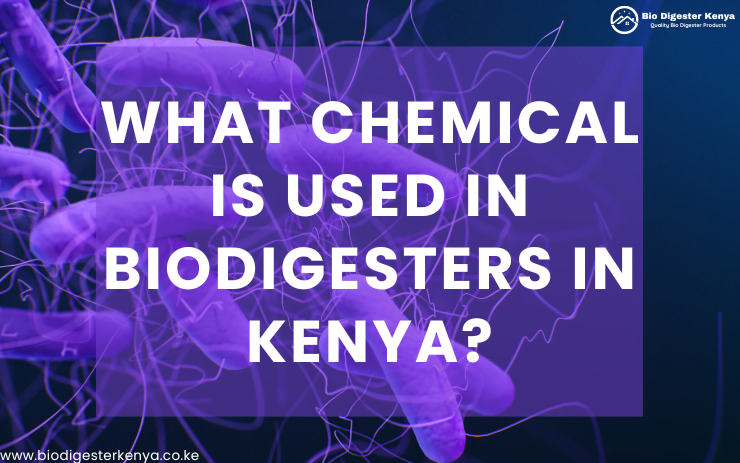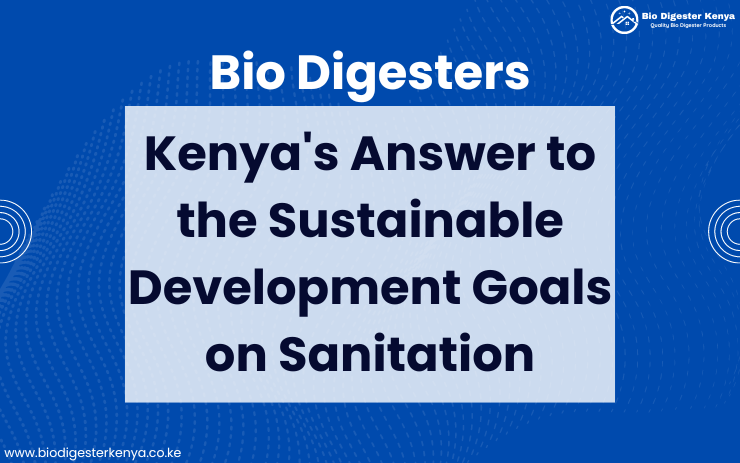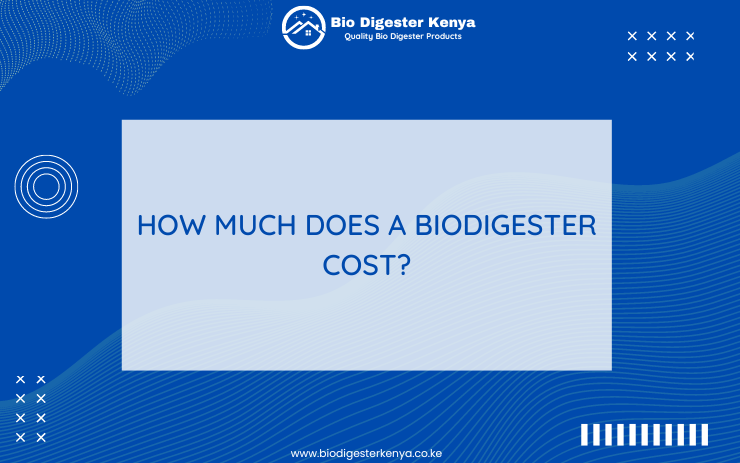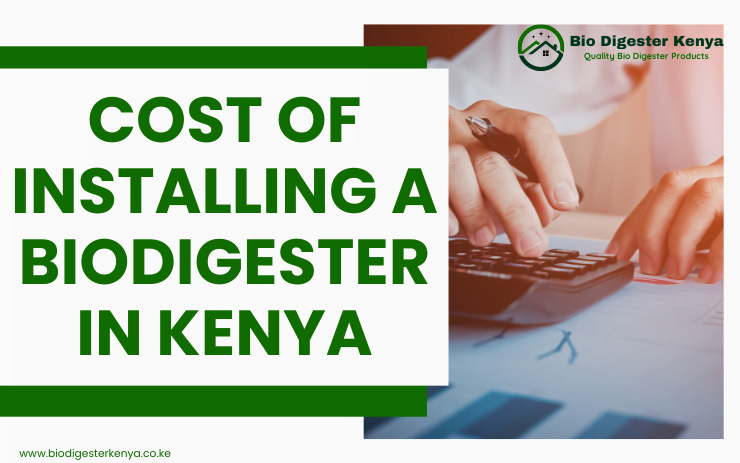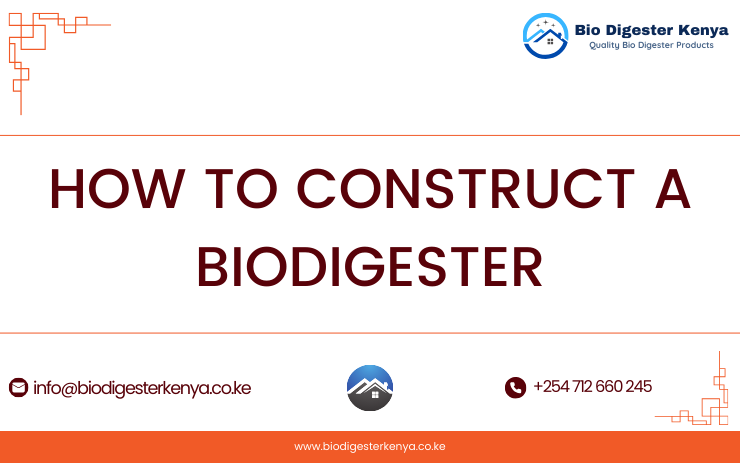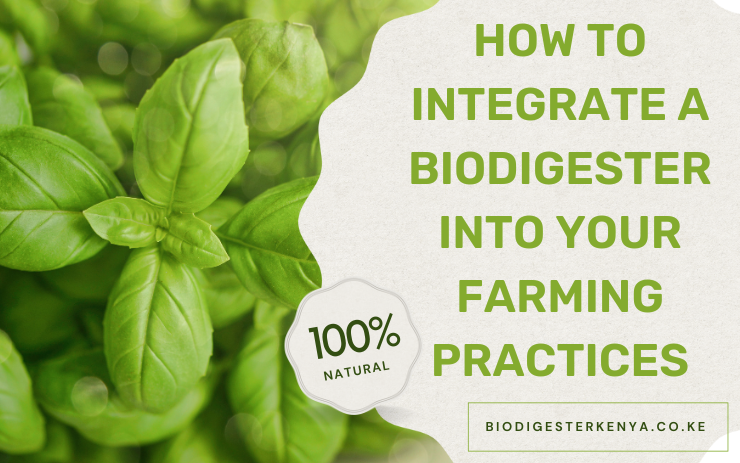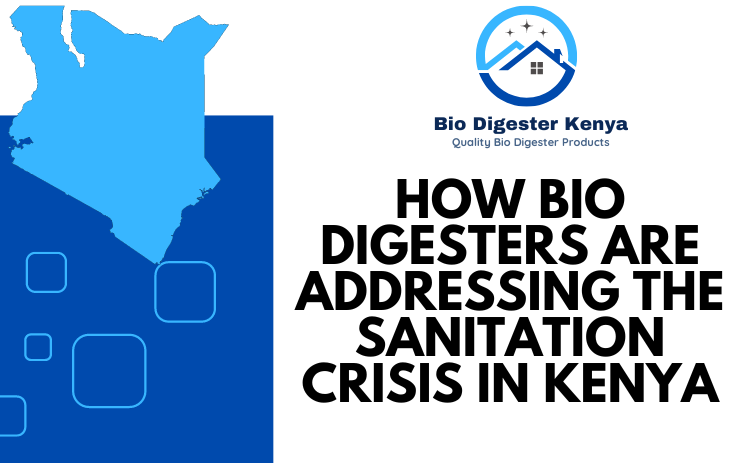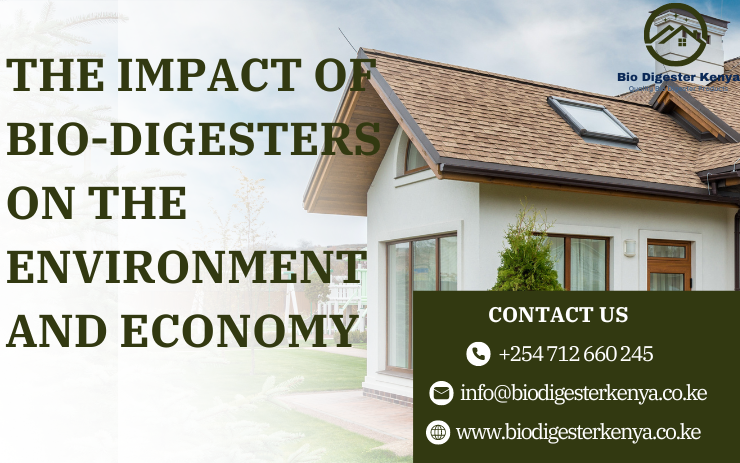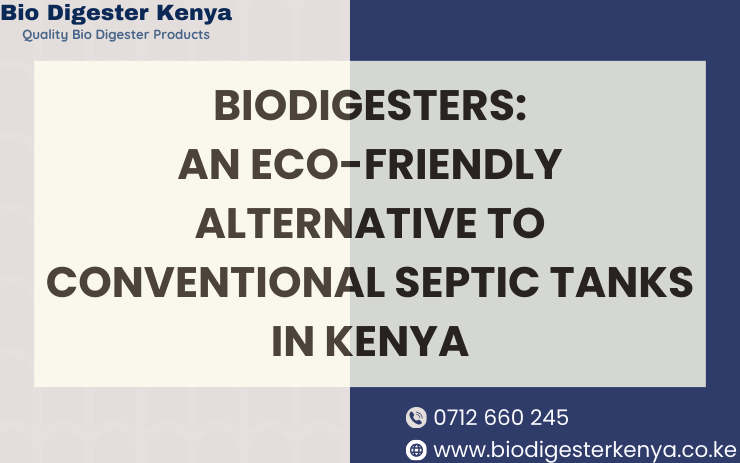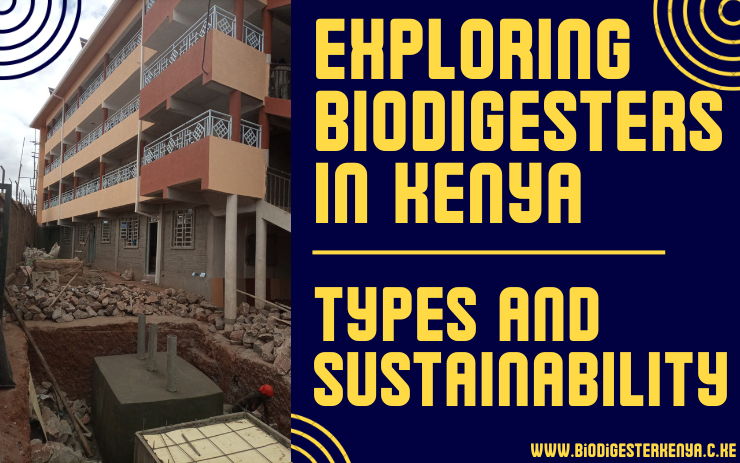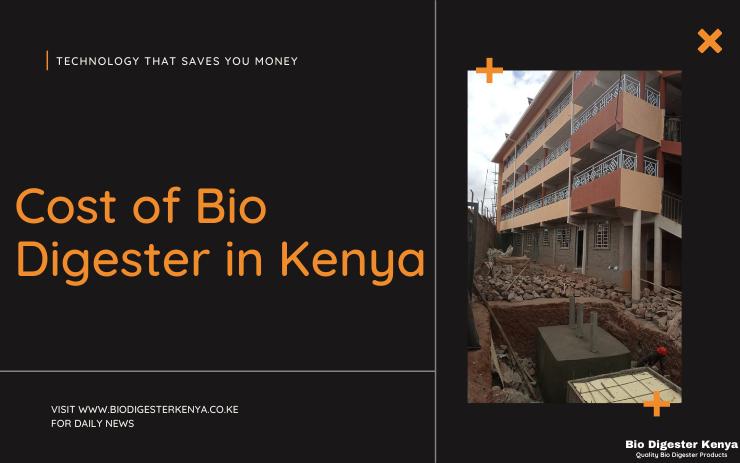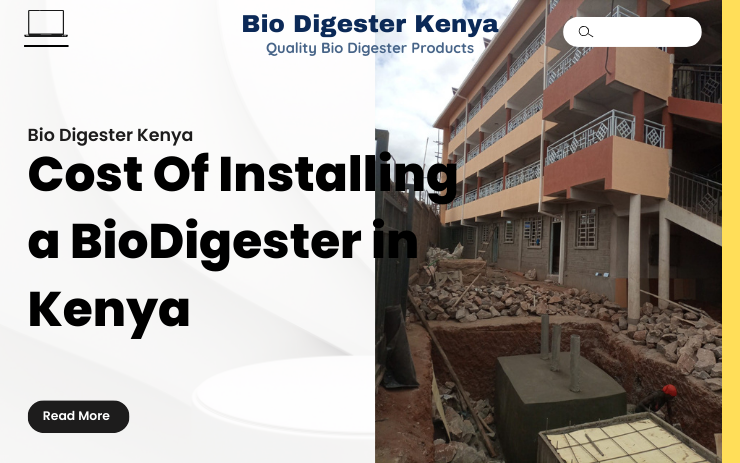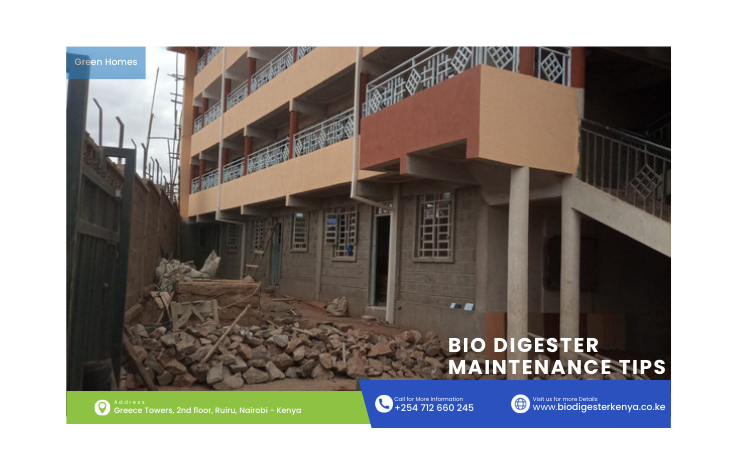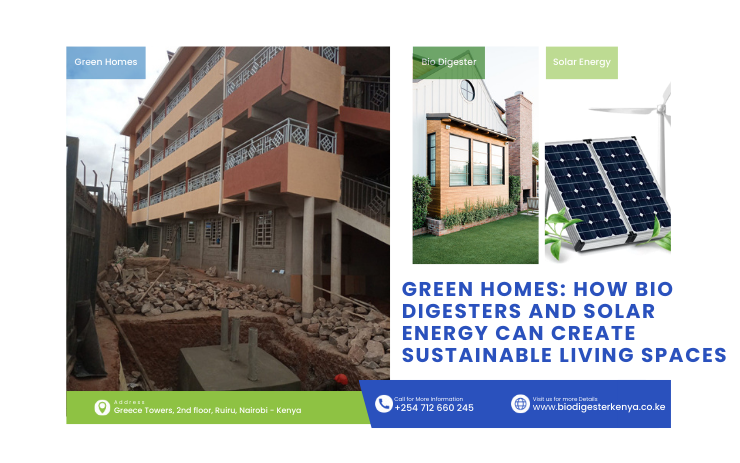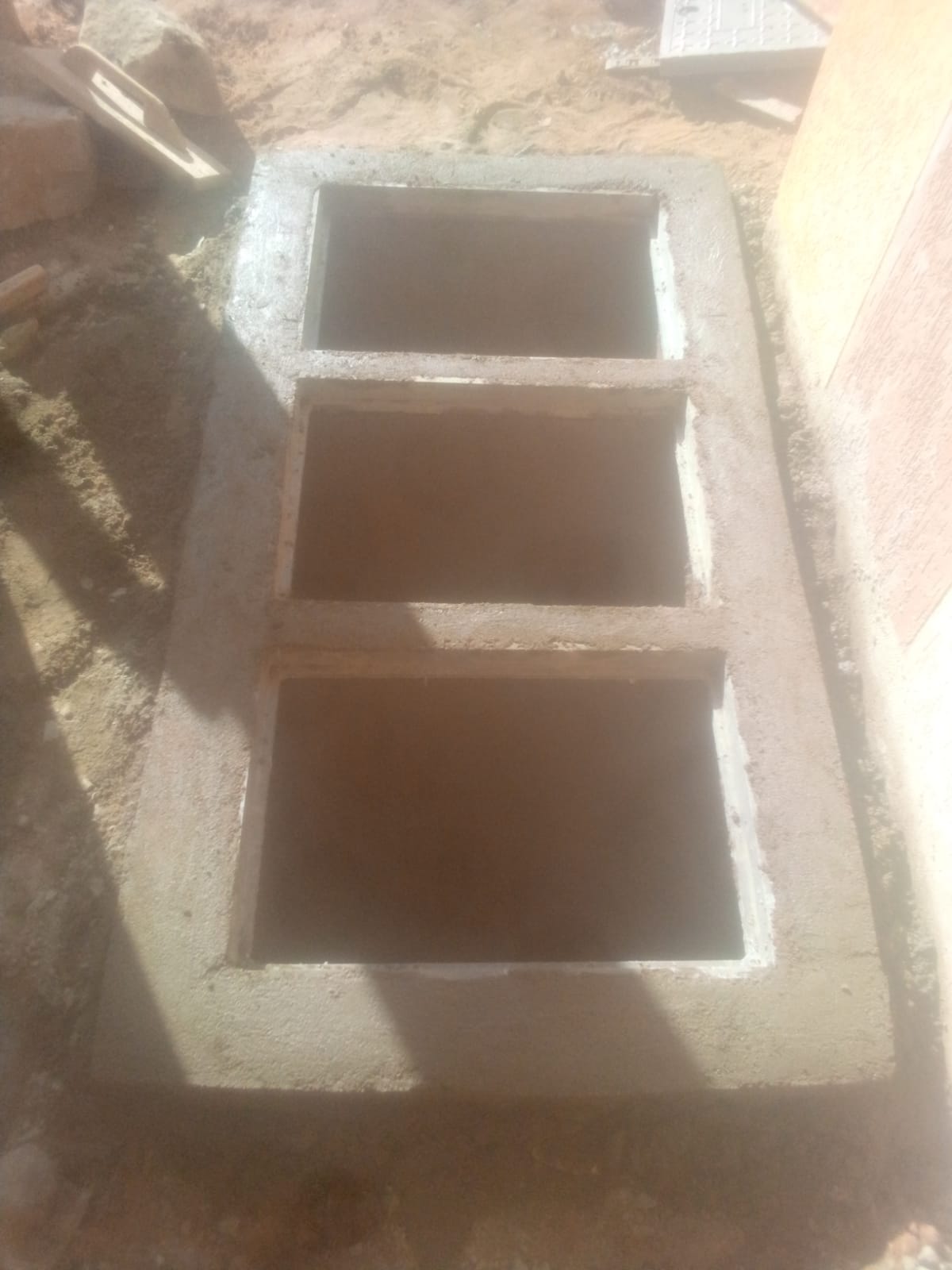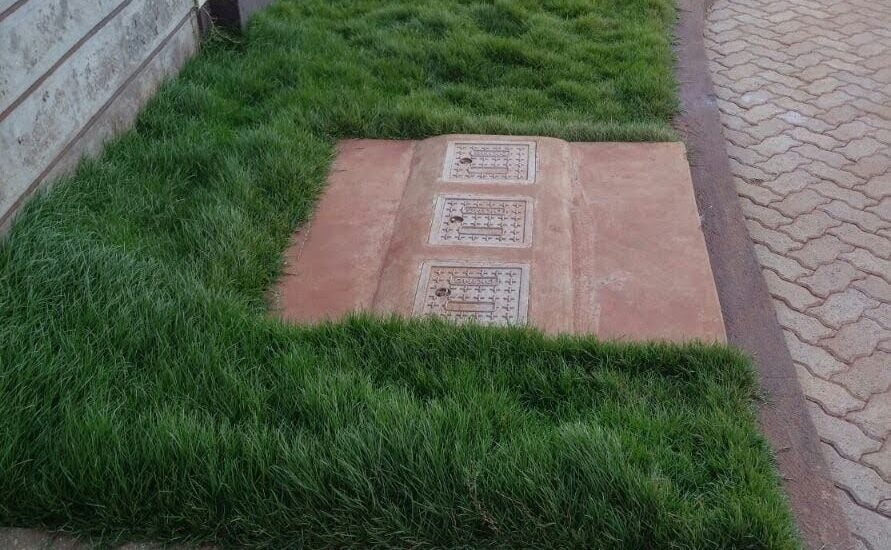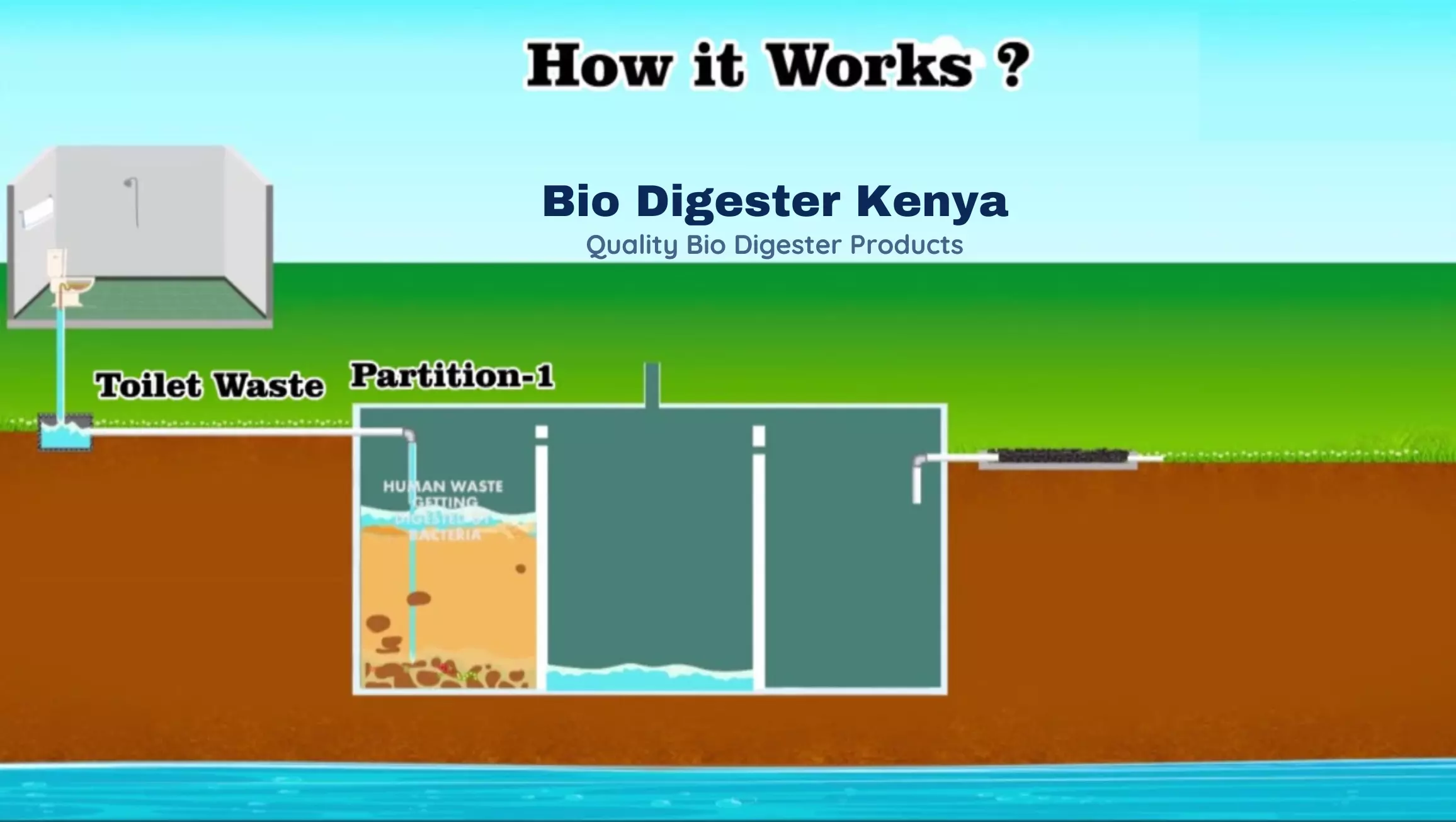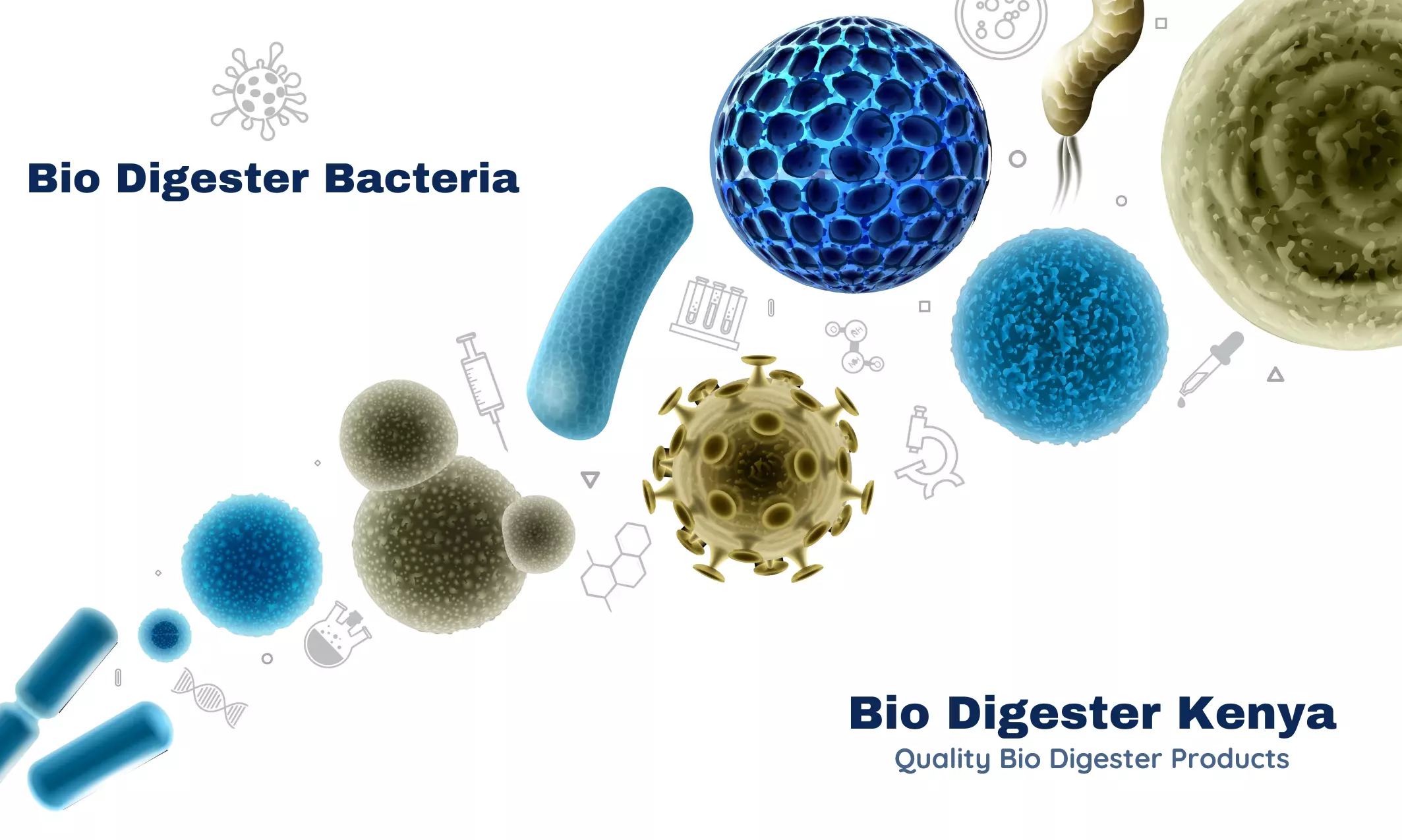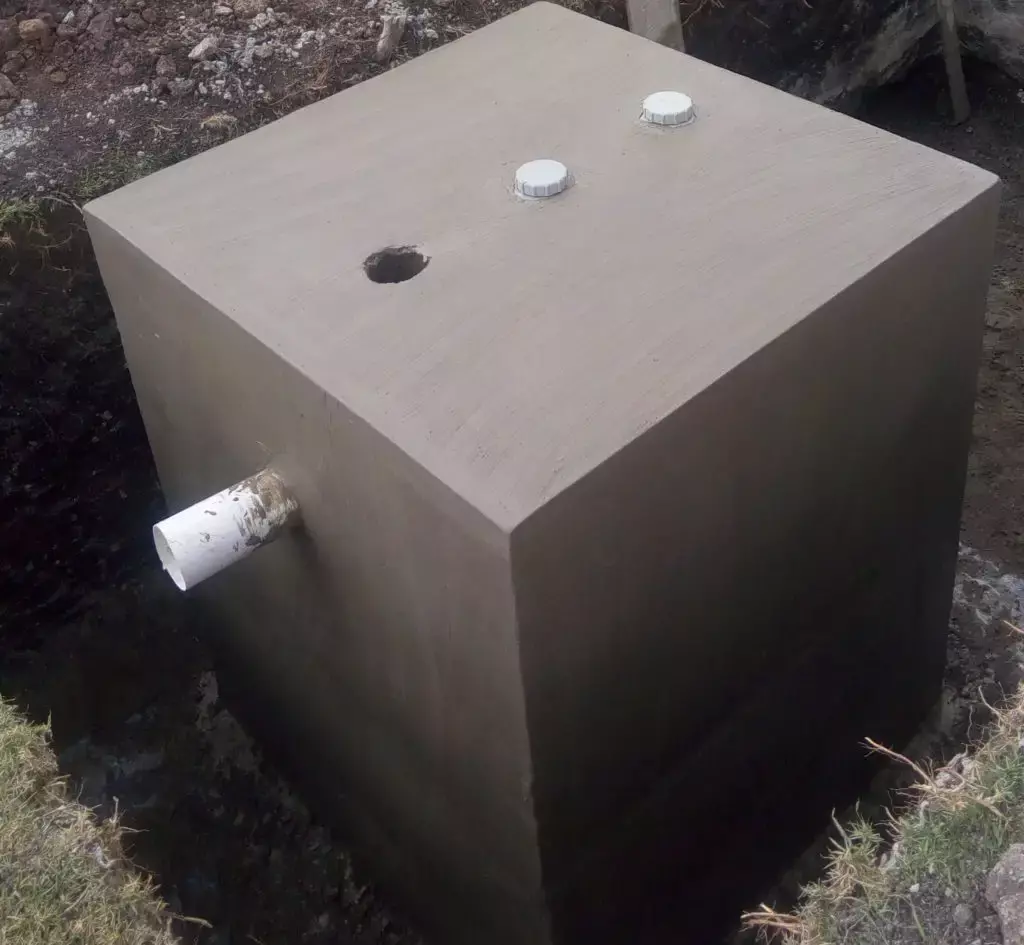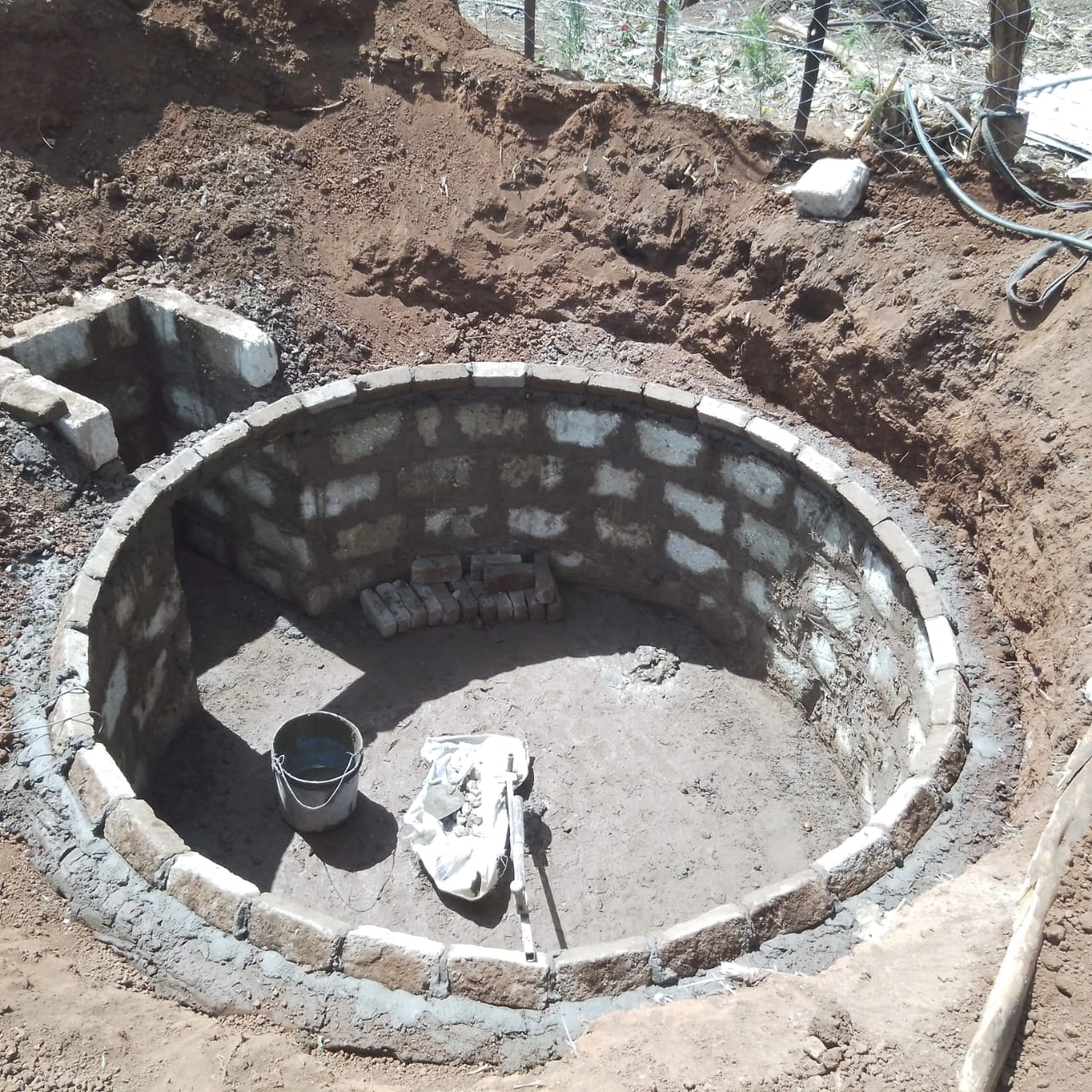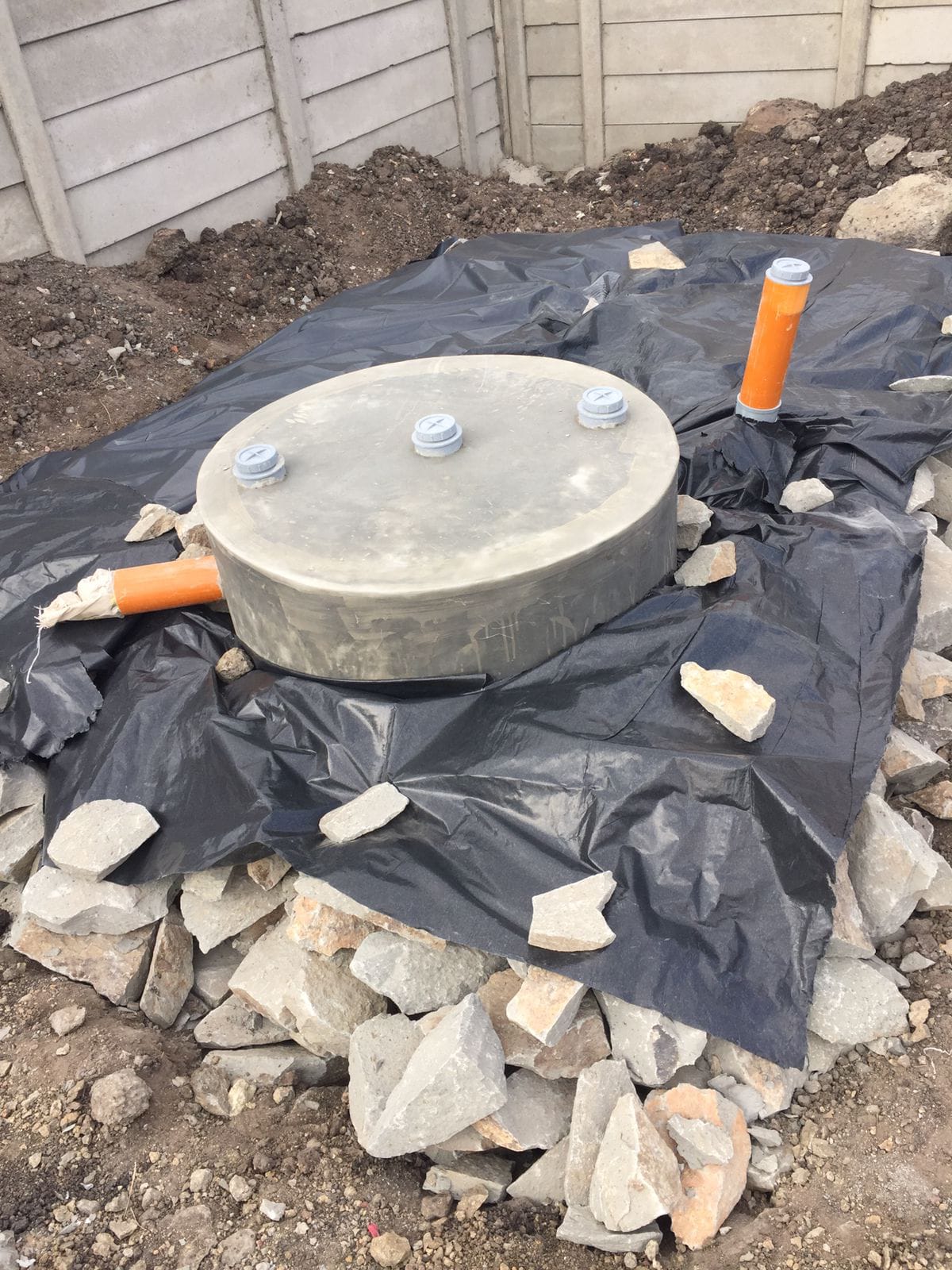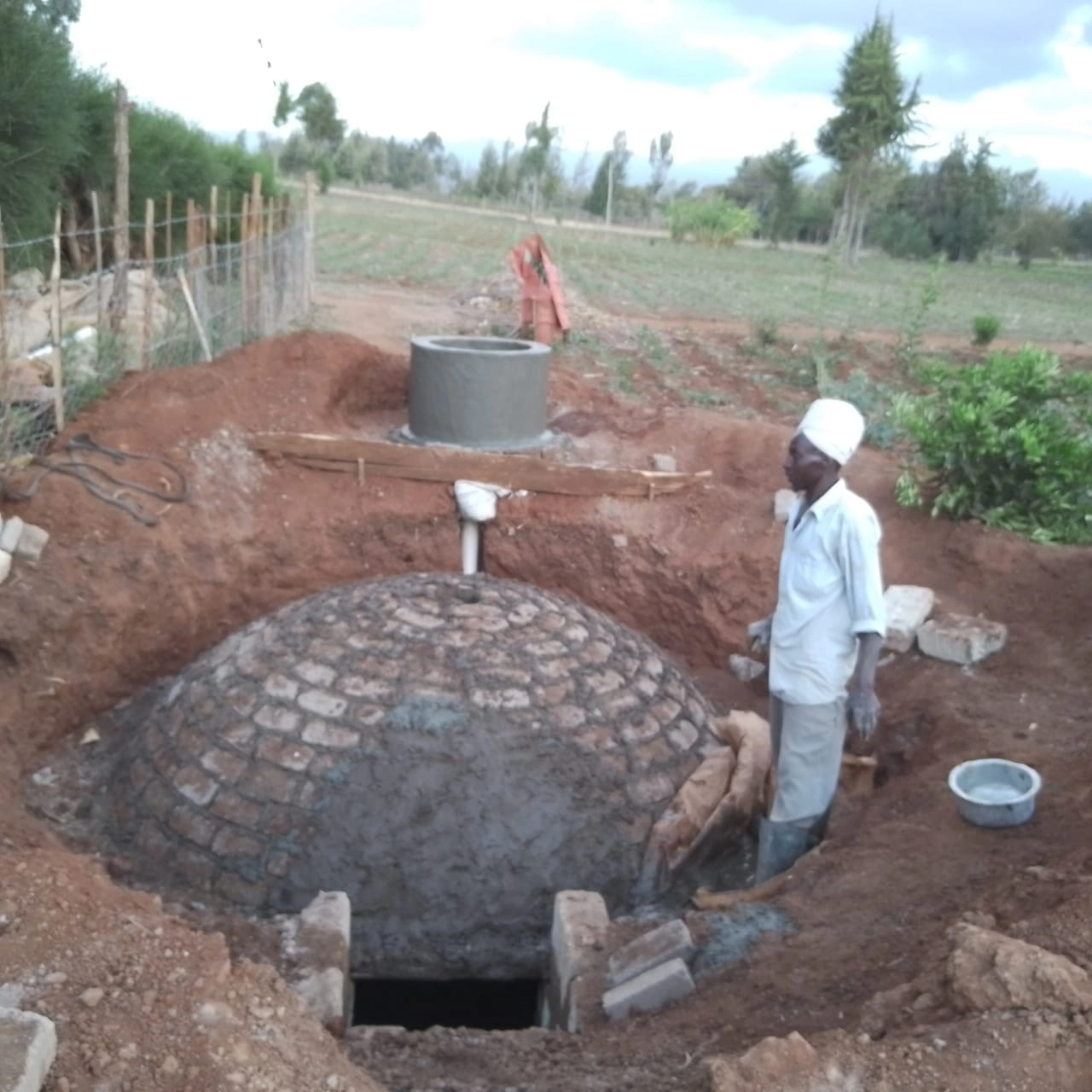In an era where environmental sustainability is more than just a buzzword, effective waste management solutions have become essential for both urban and rural communities.
Traditional septic systems, often plagued by inefficiency and environmental hazards, are quickly being overshadowed by innovative alternatives.
One such solution gaining traction in Kenya is the biodigester toilet.
These systems not only offer an eco-friendly way to manage waste but also transform it into usable resources.
At Bio Digester Kenya, we’re at the forefront of this movement, providing expert design and installation services to help you make the switch to a cleaner, greener future.
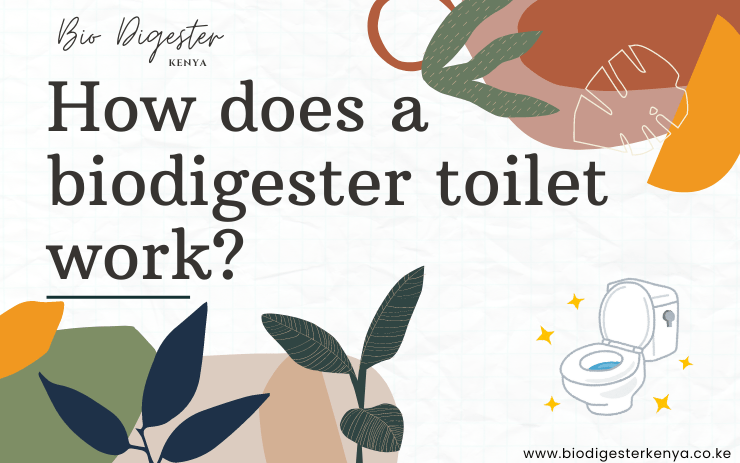
Introduction
In a world increasingly focused on sustainable living and environmental responsibility, finding innovative solutions for waste management is more critical than ever.
Traditional septic systems, though widely used, have several drawbacks, including environmental pollution and high maintenance costs.
Biodigester toilets offer a modern, eco-friendly alternative that not only addresses these issues but also provides a practical solution for both residential and commercial spaces.
At Bio Digester Kenya, we specialize in designing and installing biodigesters, making sustainable waste management a reality across Kenya.
What Is a Biodigester Toilet?
Definition and Overview
A biodigester toilet is an advanced waste management system that uses natural processes to break down human waste into harmless byproducts—mainly water and biogas.
Unlike conventional septic tanks, which merely store waste, biodigesters actively decompose and treat waste on-site.
Comparison with Traditional Septic Systems
While traditional septic systems rely on bacterial action in a tank to treat waste, they often require regular pumping and can contribute to groundwater contamination.
Biodigester toilets, on the other hand, are self-sustaining, environmentally friendly, and require minimal maintenance.
The Science Behind Biodigesters
Biological Processes Involved
Biodigesters operate on the principles of anaerobic digestion, where microorganisms break down organic matter in the absence of oxygen.
This process results in the production of biogas, which can be used as a renewable energy source, and water, which is safe for disposal.
Role of Biodigester Enzymes
Biodigester enzymes are crucial to the efficiency of this process. These enzymes accelerate the breakdown of waste, ensuring that the system remains efficient and odor-free.
At Bio Digester Kenya, we provide high-quality enzymes specifically designed for optimal performance in biodigester systems.
How a Biodigester Toilet Works
Step 1: Waste Collection
Waste from toilets and other sources is piped directly into the biodigester unit. Unlike traditional systems, which rely on large, unsightly tanks, biodigesters are compact and can be installed underground, out of sight.
Step 2: Waste Breakdown
Once inside the biodigester, waste undergoes anaerobic digestion. Microorganisms and enzymes work together to break down the organic material, converting it into simpler compounds. This process is efficient, reducing the volume of waste significantly.
Step 3: Conversion to Biogas and Water
As the waste is broken down, two main byproducts are produced: biogas and water. The biogas can be captured and used as a clean energy source, while the water is safe to be released into a soakage area where it is absorbed by the ground.
Step 4: Disposal of Water and Gas
The treated water is harmless and can be disposed of in an environmentally safe manner. The biogas can be used to generate energy, reducing reliance on traditional fuels and contributing to a more sustainable lifestyle.
Components of a Biodigester Toilet System
Inlet Chamber
This is where the waste first enters the system. The inlet chamber is designed to prevent blockages and ensure a smooth flow of waste into the biodigester.
Anaerobic Digestion Chamber
The core of the biodigester system, this chamber houses the microorganisms and enzymes that break down the waste. It’s designed to maximize contact between the waste and the active agents, ensuring efficient decomposition.
Outlet Chamber
After the waste has been treated, it moves into the outlet chamber, where the byproducts are separated. The water is directed to the soakage area, while the biogas is captured for use.
Soakage Area
This is where the treated water is absorbed back into the ground. The soakage area is designed to ensure that the water percolates safely, without causing contamination.
Types of Waste Handled by Biodigester Toilets
Human Waste
The primary type of waste handled by biodigester toilets is human waste. The system is designed to efficiently break down fecal matter, reducing it to water and gas.
Greywater
Biodigesters can also handle greywater, which is wastewater from showers, sinks, and laundry. By treating this water, biodigesters reduce the overall burden on the environment.
Organic Kitchen Waste
In some setups, biodigesters can also process organic kitchen waste, further enhancing their role in sustainable living.
Benefits of Using Biodigester Toilets
Environmental Benefits
Biodigester toilets are a boon for the environment. They reduce methane emissions, prevent groundwater contamination, and minimize the impact of human waste on the ecosystem.
Cost Savings
While the initial installation cost of a biodigester may be higher, the long-term savings are significant. With minimal maintenance and no need for frequent pumping, biodigesters prove to be a cost-effective solution.
Low Maintenance Requirements
One of the major advantages of biodigesters is their low maintenance. The system is designed to be self-sustaining, requiring only occasional checks and enzyme additions.
Space Efficiency
Biodigesters are compact and can be installed underground, making them an ideal choice for both urban and rural settings where space is at a premium.
Biodigester Toilets in Kenya
Adoption in Residential Areas
In Kenya, biodigester toilets are becoming increasingly popular in residential areas.
Homeowners appreciate the environmental benefits and the long-term cost savings.
Commercial Applications
Businesses, particularly in the hospitality industry, are also adopting biodigesters.
These systems not only manage waste efficiently but also contribute to the company’s green credentials.
Government Support and Regulations
The Kenyan government has recognized the benefits of biodigesters and is encouraging their adoption through various incentives and regulations aimed at promoting sustainable waste management practices.
Why Choose Bio Digester Kenya?
Expertise and Experience
At Bio Digester Kenya, we bring years of experience to the table.
Our team is skilled in designing and installing biodigester systems that meet the specific needs of our clients.
Quality Products and Services
We pride ourselves on offering high-quality biodigesters and enzymes.
Our products are designed to be durable, efficient, and environmentally friendly.
Customer Testimonials
Our satisfied customers are our best advertisement.
Many homeowners and businesses in Kenya have benefited from our biodigester systems, and their testimonials speak to the quality and reliability of our products.
Maintenance of Biodigester Toilets
Regular Checks and Inspections
To keep your biodigester functioning optimally, regular inspections are recommended.
This ensures that all components are working correctly and that there are no blockages or other issues.
Adding Biodigester Enzymes
Enzymes play a crucial role in maintaining the efficiency of the biodigester.
These should be added according to the manufacturer’s instructions to ensure continuous waste breakdown.
Troubleshooting Common Issues
While biodigesters are generally low-maintenance, occasional issues can arise.
Common problems include blockages or slow digestion, which can often be resolved with enzyme treatments or minor adjustments.
Cost of Installing a Biodigester Toilet
Initial Installation Costs
The cost of installing a biodigester toilet varies depending on the size and complexity of the system.
However, the investment is worthwhile given the long-term benefits.
Long-term Savings
Over time, the cost savings from reduced maintenance and the ability to generate biogas make biodigesters a financially sound investment.
Comparison with Traditional Septic Systems
When compared to traditional septic systems, biodigesters offer better value for money in the long run due to their lower maintenance costs and environmental benefits.
Environmental Impact of Biodigester Toilets
Reduction in Methane Emissions
Methane is a potent greenhouse gas, and traditional septic systems are a significant source.
Biodigesters reduce methane emissions by capturing and using the gas as an energy source.
Prevention of Groundwater Contamination
By treating waste on-site, biodigesters prevent harmful contaminants from leaching into the groundwater, protecting our vital water resources.
Sustainable Waste Management
Biodigesters represent a sustainable approach to waste management, turning waste into a resource rather than a problem.
Common Myths About Biodigester Toilets
Myth 1: Biodigesters Are Unhygienic
This is a common misconception. In reality, biodigesters are highly hygienic, as they completely break down waste, leaving no harmful residues.
Myth 2: Biodigesters Are Expensive
While the initial cost may be higher, biodigesters save money in the long run due to their low maintenance and long lifespan.
Myth 3: Biodigesters Don’t Work in Cold Climates
Biodigesters are effective even in cooler climates. The enzymes used in the process are designed to function in a wide range of temperatures, ensuring efficient waste breakdown.
Case Studies: Successful Biodigester Projects in Kenya
Residential Installations
In urban areas, many homeowners have made the switch to biodigesters, enjoying the benefits of reduced waste management costs and a smaller environmental footprint.
Commercial Installations
Businesses, particularly in the tourism sector, have adopted biodigesters as part of their sustainability initiatives, improving their eco-friendly credentials.
Conclusion
In summary, biodigester toilets are a game-changing solution for sustainable waste management.
By converting waste into safe byproducts, they offer a practical, environmentally friendly alternative to traditional septic systems.
If you’re looking to install a biodigester toilet in your home or business, Bio Digester Kenya is here to help.
Our expertise, high-quality products, and commitment to customer satisfaction make us the ideal choice for all your biodigester needs.
FAQs
How often do I need to maintain a biodigester toilet?
Biodigester toilets require minimal maintenance, typically only needing checks and enzyme additions a few times a year.Can a biodigester handle all types of waste?
Biodigesters are designed to handle human waste, greywater, and in some cases, organic kitchen waste.How long does a biodigester system last?
With proper maintenance, a biodigester system can last for many years, often outlasting traditional septic systems.Is there a smell associated with biodigester toilets?
No, biodigester toilets are designed to be odor-free, thanks to the efficient breakdown of waste and the use of enzymes.What is the cost of biodigester enzymes?
The cost of enzymes varies depending on the quantity and brand, but they are generally affordable and essential for maintaining the system’s efficiency.
